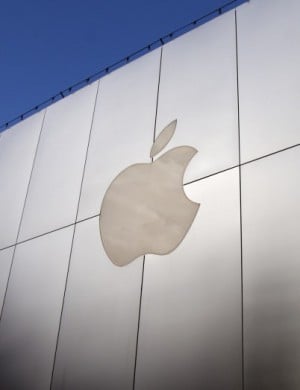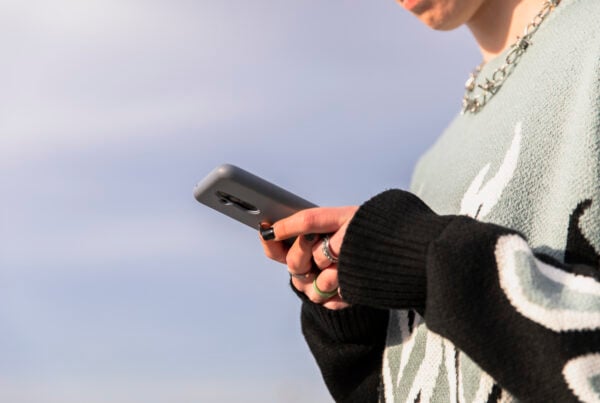Find out the week’s top mobile stories from around the world.
This week.. The Facebook bots are coming – news and reactions, White House not sharing iPhone unlocking method, mobile /wearable payments to top $95bn in 2018 plus more global news you may have missed..

Facebook Welcomes ‘Chat Bots’ to Its Messenger App
Fortune
As expected, Facebook bots are coming.
After opening up its chat app Messenger to businesses last year, Facebook is now letting them build bots for the service, said co-founder and CEO Mark Zuckerberg on Tuesday at the company’s annual developer conference F8 in San Francisco. Brands and companies will be able to build small artificial intelligence software programs that interact with Messenger users.
“Last year, Messenger was the fastest growing app, ahead of even Facebook, which was second,” boasted Zuckerberg, inciting a laugh from the audience. The Messenger app now has 900 million monthly active users, up from 800 million in January, the social network revealed last week.
Read more…
Facebook’s bots are an ‘existential threat’ to Apple, says Wall Street analyst
Business Insider
Facebook’s big announcement this week is Messenger Platform, which allows businesses and brands to interact with their customers through a chat exchange in Facebook Messenger.
But Facebook’s experiment to replace 1-800 numbers could end up being an “existential threat” to Apple, according to a research note from UBS.
In the note, Steven Milunovich explains that part of Apple’s value is as a platform company, thanks to its App Store. Part of the reason that Apple can boast 90% repeat customers is that it has the best apps on its platform.
Read more…
White House won’t share iPhone unlocking method with FBI or Apple
VentureBeat
The company that helped the FBI unlock a San Bernardino shooter’s iPhone to get data has sole legal ownership of the method, making it highly unlikely the technique will be disclosed by the government to Apple or any other entity, Obama administration sources said this week.
The White House has a procedure for reviewing technology security flaws and deciding which ones should be made public. But it is not set up to handle or reveal flaws that are discovered and owned by private companies, the sources said, raising questions about the effectiveness of the so-called Vulnerabilities Equities Process.
Read more…
Mobile and wearable payments set to total $95bn in 2018
Essential Retail
New research from Juniper Research suggests the global value of mobile and wearable contactless payments is expected to reach $95 billion annually by 2018, up from less than $35 billion generated in 2015.
The analyst group anticipates that devices such as watches and wristbands – such as those provided by Apple – would be in the vanguard of these developments, although it warned the sector would take several years to reach critical mass.
Data is discussed in the research company’s ‘Contactless Payments: NFC Handsets, Wearables & Payment Cards 2016-2020’ study, which argues that the emergence of a range of connected wearables has piqued the interest of NFC stakeholders.
Read more…
Cash shortages drive spike in mobile money transfers
News Day
As the largest sender of remittances to mobile money in Zimbabwe, we have witnessed the continued growth of people transferring money from overseas into the mobile money accounts of family members. The vast majority of our transfers now go to Ecocash accounts, as opposed to cash pickup or bank deposit.
However, even we were surprised by a dramatic spike in mobile money transfers during the final week of March — just as the cash shortage was starting to make major headlines.
Within the space of a day, Zimbabwean diaspora went from sending around 80-85% of their money transfers to mobile money to 91% — a record high, with the exception of Christmas day when people tend to take advantage of instant mobile transfers to send last-minute gifts.
That swift response to the current situation is significant for three reasons.
Read more…
Microsoft offers first major endorsement of new EU-U.S. data pact
VentureBeat
Microsoft became on Monday the first major U.S. tech company to say it would transfer users’ information to the United States using a new transatlantic commercial data pact and would resolve any disputes with European privacy watchdogs.
Data transfers to the United States have been conducted in a legal limbo since October last year when the European Union’s top court struck down the Safe Harbour framework that allowed firms to easily move personal data across the Atlantic in compliance with strict EU data transferral rules.
EU data protection law bars companies from transferring personal data to countries deemed to have insufficient privacy safeguards, of which the United States is one, unless they set up complex legal structures or use a framework like Safe Harbour.
Read more…
Nationwide tests behavioural biometrics for online banking
IT Portal
Nationwide has begun testing behavioural biometrics as a new method to help keep the financial information of its users secure when doing mobile banking on a smartphone.
The company is now exploring the ways in which smartphone users interact with their phones – from how fast they type to how they hold their devices – as a new way to verify and authenticate the consumers who use its mobile banking services.
Nationwide has collaborated with the Finish tech startup Behaviosec and the IT firm Unisys to develop a prototype that can put behavioural biometrics to use as a means of ensuring the security of its users. It took the three companies around three to six months to build the prototype.
Read more…
Why did WeChat succeed in China where other apps failed?
Tech In Asia
When Tencent first launched WeChat back in January, 2011, nobody predicted that the bare-bones, mobile-only messenger was just five years away from being an ecommerce and social media juggernaut with well over half a billion users.
The last half decade saw China’s former social media giants get used to living in WeChat’s shade. Renren, “China’s Facebook,” has seen its valuation crumble to a fifth of its 2013 high as users flocked to more feature-rich apps. And Weibo, while hardly obscure, has long since been eclipsed by WeChat’s gargantuan user base.
Read more…
Obama hires Microsoft and Uber experts to lead cybersecurity commission
The Drum
Barack Obama has raided the upper echelons of the US technology and academic sectors to flesh out a newly formed cybersecurity commission which boasts Uber, Mastercard and Microsoft stalwarts.
The Commission on Enhancing National Cybersecurity will be headed by General Keith Alexander, former head of the NSA, alongside nine other members including Joe Sullivan, chief security officer at Uber (formerly of Facebook); Ajay Banga, president and CEO of MasterCard and Peter Lee, CVP of Microsoft Research.
Read more…
What Motivates Early mHealth Adopters?
mHealth Watch
What motivates early mHealth adopters? By and large, the opportunity to get in front of a small problem before it becomes a serious one.
But according to a new report fromKantar Health — Edge of Insight: Connecting with the mHealth Consumer — consumer uptake for mHealth technologies remains low. However, mHealth shows promise for people looking to prevent or control chronic conditions.
“Despite all of the hoopla surrounding mHealth, uptake is still relatively low in the United States,” said Brian Mondry, Global Head of Digital Innovation at Kantar Health. “Our research uncovered that 46% of users of mHealth technology are actively trying to lower their risk of developing chronic conditions such as heart disease, diabetes and stroke.














